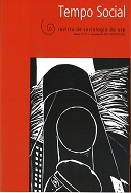O mundo após o 11 de setembro: a perda da inocência
DOI:
https://doi.org/10.1590/S0103-20702003000200002Keywords:
World conflicts, United States, 11 set., Unilateralism, Multilateralism, Globalization, External politicsAbstract
After the illusions that followed the fall of the Berlin Wall were dispelled and the perplexity with the possible immediate consequences of the American 9/11 counterattack was over, what followed was an increase in the power of the State, a unilateral use of this power, an incitement to the disagreements among world forces, a shrinking from the globalization tendency and a reversal of the gains produced by "the dividends of peace". All this brought about the resurgence of a political economic nationalism manifested by the assertion of State over market power, with a prevalence of political strategy over the economy and commerce. Even the "multilateralism" proffered by a few heads of State does not comprise an authentic democratization of international relations. All that is left for Brazil to do is to struggle for a reform of the architecture of international finances and of the multilateral commerce system, mobilizing nations with similar interests so that, together, they can explore the spaces left open by the limitations on American power and that of the other industrialized countries, in order to achieve reciprocal and generous cooperation inspired in the self-interest of each nation, on the conscience that we are interdependent. The solution to the predicament of development and the traps of poverty will not come from the (re)building of physical, political, judicial, economic and, mainly, mental walls.Downloads
References
ARON, Raymond. (2002), Paz e guerra entre as nações. São Paulo, Imprensa Oficial do Estado/Editora Universidade de Brasília/Instituto de Pesquisa de Relações Internacionais.
BANK FOR INTERNATIONAL SETTLEMENTS (BIS). (2003), Relatório de 2003. Basiléia, 30 jun.
BEATTIE, Alan. (2003), “A muscular foreign policy may be too costly for Americans to bear”. Financial Times, 15-16.
COGGAN, Philip. (2003), “Will the US economy soar or belly-flop?”. Financial Times, 26-27, jul.
DEUTSCH, Karl W. (1956), Political community and the north atlantic area: international organization in the light of historical experience. Nova York, Greenwood Press Publishers.
FONTAINE, André. (1965), “De la révolution d’Octobre à la guerre de Corée”. In: Histoire de la Guerre Froide, Paris, Fayard, vol. 1.
FUKUYAMA, Francis. (1989), “The end of history?”. The National Interest, 16: 3-18.
GILPIN, Robert. (1987), The political economy of international relations. Princeton, Princeton University Press.
KAGAN, Robert. (2003), Paradise and power: America and Europe in the new world order. Nova York, Alfred A. Knopf.
RICUPERO, Rubens. (1995), “Os Estados Unidos da América e o reordenamento do sistema internacional”. In: Visões do Brasil, Rio de Janeiro, Record, pp. 99-129.
RICUPERO, Rubens. (2001), “A busca de sentido para a economia e o desenvolvimento”. In: ARBIX, Glauco et al. (orgs.). Razões e ficções do desenvolvimento, São Paulo, Edusp/Unesp, pp. 41-54.
RICUPERO, Rubens. (2002), Esperança e ação. São Paulo, Paz e Terra.
TOLKIEN, J. R. R. (1997), “The fellowship of the ring”. In: The lord of the rings, Londres, Harper Collins Publishers, parte 1.
Downloads
Published
Issue
Section
License
Copyright (c) 2015 Tempo Social

This work is licensed under a Creative Commons Attribution-NonCommercial 4.0 International License.


